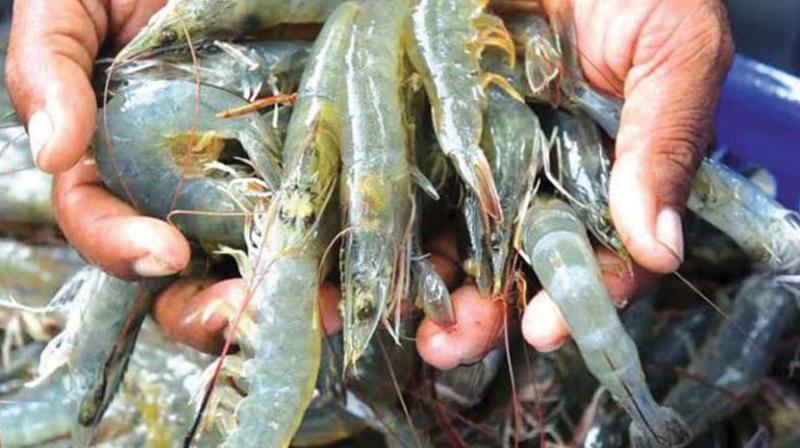Kochi: Tiger shrimp biz is getting fat

Kochi: Black tiger shrimp farming is gaining momentum in Kerala, ending a slide in production for almost a decade, thanks to the initiative of the Marine Products Export Development Authority (MPEDA).
The main seafood industry body is receiving encouraging feedback from farmers after the mass sale of its seeds for the past 100 days. The interest in the “dollar crop” is growing among farmers with the offer of the disease-free variety.
Former chief of the Research and Analysis Wing (Raw) Hormis Tharakan is a pioneer in the field who started with 10,000 seeds.
“They gained an average weight of 38 grams, thanks to the quality. I got 260 kg of shrimp in 90 days from an area of 50 cents,” he said.
“Currently, we are rearing another 90,000 seeds. This is in pleasant contrast to facing a continuous crop loss for the last three years.”
The Kochi-headquartered MPEDA had on February 18 begun supplying black tiger shrimp seeds from its new multi-species aquaculture complex (MAC) at Vallarpadam. MPEDA chairman K S Srinivas made the inaugural sale by handing over one lakh seeds to Mr Tharakan, the former top cop-turned-progressive shrimp farmer.
“We knew that increased production of the black tiger variety could boost India’s shrimp exports in the long run. We are seeing the early signs of it happening,” Mr Srinivas said.
The Rs 7.26-crore MAC, inaugurated on December 8, features a hatchery with an annual production capacity of 20 million black tiger shrimp seeds, besides nurseries for four varieties of finfishes.
Kumbalangi native C. V. Mathew, another farmer into shrimp cultivation, said black tiger seeds from MAC attained 25-gram size in the first 50 days.
“In 86 days, the animals reached an average size of 40 grams. I’ve never experienced such a growth rate of my crop.”
The black tiger shrimp, an endemic species to south-east Asia, began to face a slump in its traditional reputation since 2009 as a major variety of cultivated shrimp item in the country. That was after aquaculture farmers in the country began to focus on growing the exotic vannamei species of shrimp in a big way.

